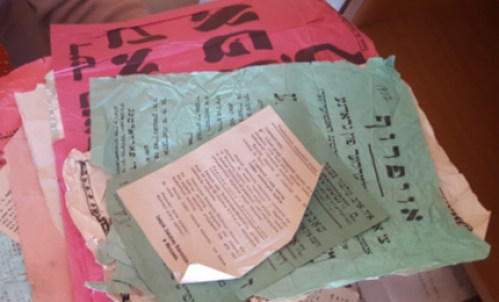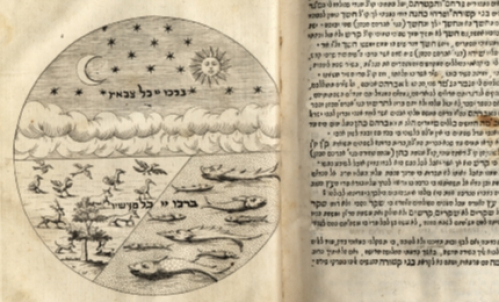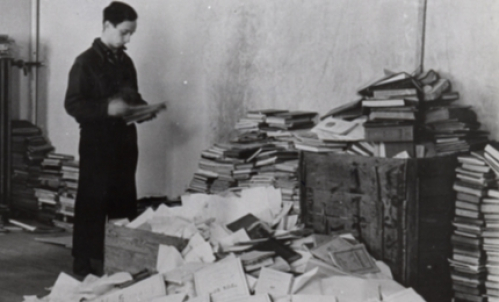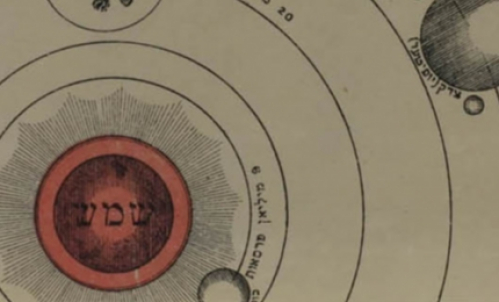Using Vilna Collections in the Classroom
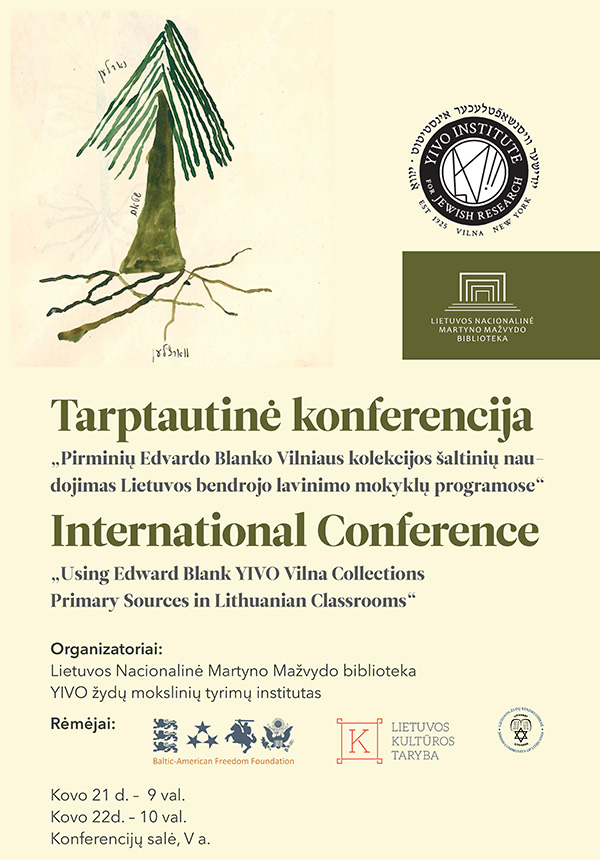
The rich primary sources digitized for this project have great potential as tools for teaching. YIVO took the first step toward realizing this potential in March 2018 in a two-day conference for Lithuanian teachers, co-sponsored by the Martynas Mažvydas National Library of Lithuania.
Many of the documents and books in the Edward Blank YIVO Vilna Online Collections relate directly to the Jewish life that flourished in Lithuania before World War II. They include literary works, letters, memoirs, theater posters, photographs, rare books, pamphlets, newspapers, political tracts, religious treatises, and communal records. They not only document everyday Lithuanian Jewish life but also have the potential to illuminate the important role played by the Jewish minority in Lithuanian history and society. This story was suppressed in Soviet times and is only now beginning to be grappled with in the public arena – and in classrooms.
The conference, held in Vilnius in the National Library, attracted the participation of 30 high school teachers from all over Lithuania, who attended workshops and presentations by scholars and educators, including
- Christine Beresniova, Director, South Carolina Council on the Holocaust, author of Holocaust Education in Lithuania (2017)
- Łucja Koch, Head, Education Department at POLIN Museum, Warsaw
- Mindaugas Kvietkauskas, Director, Institute of Lithuanian Literature and Folklore, translator of Yitzkhok Rudashevsky‘s Diary of the Vilna Ghetto (2017)
- Jolanta Mickutė, Assistant Professor of History, Vytautas Magnus University, author of Modern, Zionist, Feminist: The Politics of Culture, Ethnicity, and Gender in Interwar Poland, 1918-1939 (Forthcoming)
- Saulius Sužiedelis, Professor Emeritus, Millersville University, co-author with Christoph Dieckmann, of The Persecution and Mass Murder of Lithuanian Jews during Summer and Fall of 1941 (2006)
Their presentations focused on addressing key themes of the conference: Why teach and learn about the Jews of Lithuania? How can doing so enhance teachers’ and students’ understanding of Lithuanian history and Lithuanian identity? What challenges are there for teachers (and students) that are specific to Lithuania?
A bilingual English-Lithuanian website was prepared by the YIVO project team and colleagues from the National Library’s Judaica Research Centre for use in the teachers’ workshops. Representatives of other cultural organizations, such as the Vilna Gaon State Jewish Museum and the Centre for Studies of the Culture and History of East European Jews (Vilnius University) were also invited to present their educational projects to the attendees.
The conference is envisioned as only the first step in a multi-year initiative in Lithuania in continued partnership with the National Library. YIVO’s new office in the National Library will serve as the hub for these programs, which will include assistance in the preparation of teaching resources and yearly teachers’ workshops, and which we hope will serve as a model for YIVO educational initiatives in other countries.
